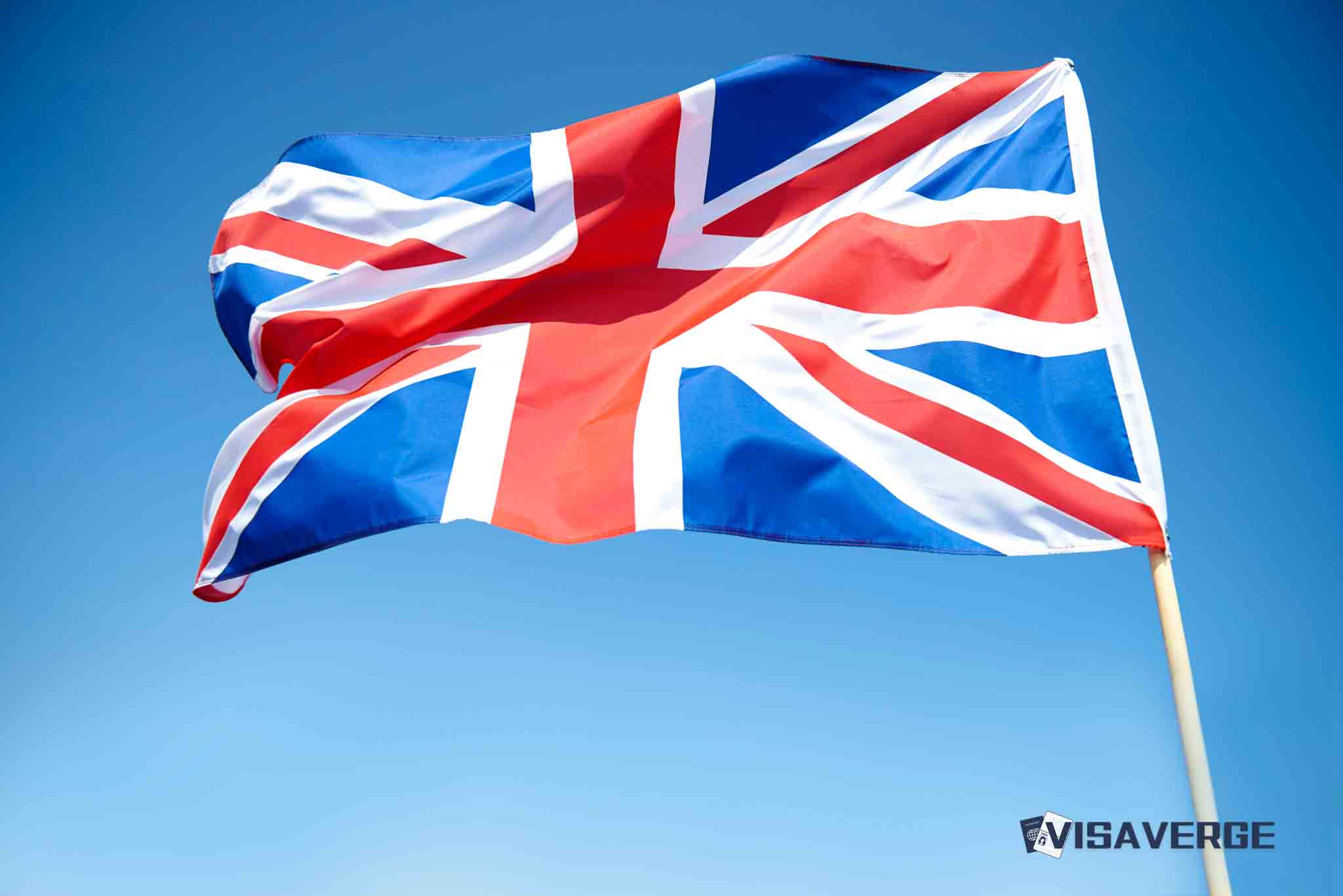Key Takeaways
• An Albanian asylum seeker’s claim was denied after authorities learned he had married a woman.
• UK law requires clear, consistent evidence for LGBTQ+ asylum claims to be successful.
• In 2023, only about 62% of LGBTQ+ claims were approved without appeals due to strict evidentiary standards.
An Albanian man who sought protection in the United Kingdom 🇬🇧 as a gay asylum seeker lost his right to stay after British immigration authorities discovered he had married a woman. The denial of his appeal has drawn focus to how closely the UK examines claims based on sexual orientation, and the high standards set for evidence in such cases.
Overview of the Case

In this case, the individual from Albania 🇦🇱 claimed he would face danger in his home country because of his sexual orientation. He put forward his identity as a gay man as the main reason for asking to stay in the UK as an asylum seeker. However, during the legal process, it came to light that he had married a woman. This fact led the immigration court to question his claim and ultimately deny him the right to stay. The court did not believe his explanation that his sexuality had changed, and found a contradiction between his stated identity and his actions.
This situation is not unique. It highlights that people who seek asylum based on being LGBTQ+ must provide clear and consistent evidence supporting their claims. If their stories have inconsistencies or actions that seem to go against their claims—such as being married to someone of the opposite sex—this can seriously damage their chance to remain in the United Kingdom 🇬🇧.
Understanding Asylum Claims Based on Sexual Orientation
Claims for asylum on the grounds of sexual orientation are among the most complex types of protection cases. In the UK, as in many countries, people can seek protection if they face a real risk of suffering harm in their home country because of who they are or who they love. This can include fear of violence, discrimination, or legal punishment due to being lesbian, gay, bisexual, or transgender (LGBTQ+).
But the rules are clear: each asylum seeker must show that the threat is real and personal to them. Moreover, they must convince immigration officers or judges that they are telling the truth about their identity.
Evidence in LGBTQ+ Asylum Cases
Evidence in these cases usually falls into two main categories:
- Personal Testimony: Most often, the individual’s own story, including how they came to understand and express their sexual orientation, forms the core of their case. This often includes describing experiences of discrimination, abuse, or fear that they would face in their country.
- Supporting Documents and Witness Statements: Sometimes, letters from friends or partners, proof of joining LGBTQ+ groups, or expert reports on what risks exist in the home country are also presented.
Despite the progress in UK law over the past twenty years, authorities still ask for substantial proof. They need to be convinced that the risk is genuine and not made up for immigration purposes.
The Importance of Credibility
In every asylum case, credibility is crucial. For an asylum seeker, especially one who says they are fleeing for being LGBTQ+, making a strong, consistent, and believable case is key. If any part of a person’s story does not match their actions, or if new facts come up—like marrying a woman after claiming to be a gay man—judges may decide the story was not truthful.
In the Albanian man’s case, once the court learned about his marriage to a woman, they doubted his story about risking harm for being gay. The judge did not believe his explanation that his sexuality had changed since making the original claim. As a result, the man lost his right to stay.
UK Law and LGBTQ+ Immigration
The UK has made major legal changes to support and recognize same-sex relationships. The Civil Partnership Act 2004 allowed civil partnerships between same-sex couples, giving rights like those for married couples. Later, the Marriage (Same Sex Couples) Act 2013 made it legal for same-sex couples to marry. In immigration law, these changes mean that the UK now treats applicants in same-sex relationships the same as those in opposite-sex relationships.
However, these positive legal steps do not always make immigration cases simpler. Instead, new challenges have come up—mostly about proving identity and the truth of a person’s story. UK officials and courts remain careful in these cases because they want to ensure that only those truly at risk get protection.
The Numbers: How Many Succeed?
Claims based on sexual orientation make up a small share of asylum applications in the UK. In 2023, about two out of every one hundred asylum claims included sexual orientation as a reason for asking for protection. Of these, around sixty-two percent were approved right away.
- This means that for every 100 LGBTQ+ based asylum claims, about 62 people got a positive decision without needing a long appeal process.
- At the same time, roughly one in three claims were refused at the first stage.
- Reasons for refusal often include lack of evidence or contradictions in the personal story—such as the case when an applicant had married a woman but said he feared danger for being gay.
Why Contradictory Evidence Matters
British immigration authorities and courts are trained to look for truth and check all the facts. When a case has facts that do not support each other—or worse, completely go against each other—such as marrying a woman after claiming a gay identity—the court is likely to say the story does not add up.
Authorities understand that sexual orientation is personal and may not be easy to talk about, especially for people from countries where being LGBTQ+ is unsafe. They do not expect everyone to have the same story or proof. But if there are big gaps or actions that seem to show the opposite of what has been claimed, their trust is lost.
For example:
– An asylum seeker says they fear harm for being gay.
– Later, authorities find the same person is married to a woman.
– The officer or judge may ask: Is this person truly at risk for being gay, or are they using this claim only to stay in the UK?
The Challenge of Proving Sexual Orientation
Many people think that being forced to “prove” their sexual orientation is unfair, as it is a deeply personal matter. LGBTQ+ groups remind the UK government to treat these cases with understanding and care. However, the demand for proof is still high, because the system also wants to stop people from making false claims.
To help, the UK government and some charities publish guidance. This explains what kind of evidence might help, such as:
– Letters or statements from friends who know about the person’s sexuality
– Membership proof from LGBTQ+ groups
– Testimony (speaking or writing) about personal struggles or past harm
Sometimes, it is hard for asylum seekers to produce these types of proof, especially if they have hidden who they are to avoid harm in their home country. British courts have said they cannot expect people to have lived openly as LGBTQ+ if that would have put them in danger. Still, the need for some form of evidence remains.
For more information on asylum requirements in the UK, you can visit the official UK government page on asylum claims based on sexual orientation.
Effects on Applicants and Communities
The pressure to prove identity affects people’s lives in deep ways. If a person’s claim is refused, they may face removal to their home country, where they could risk harm. Some people, frightened by the tough standards in the UK, may hide their stories or even avoid applying for asylum altogether.
It also means LGBTQ+ organizations and legal support groups must work hard to help asylum seekers understand what kind of proof is needed and how to explain their stories clearly. In the Albanian man’s case, after his marriage to a woman became known, there was little legal ground left for appeal—even though British law supports protection for LGBTQ+ people in need.
Other Views: Fair Process or Too Demanding?
There is much debate about whether the UK system is fair to applicants like the Albanian man. Some say the strict proof rules make it too hard for genuine asylum seekers to get protection, especially when their histories are complex or private. Others argue the system must be strict to prevent abuse and ensure that only those truly in need get the right to stay.
Charity groups like Rainbow Migration have told stories of real people whose claims were doubted only because they could not present enough “proof,” even when their true identity as LGBTQ+ was later confirmed.
On the other hand, the government defends the system, saying that rising numbers of people claiming LGBTQ+ status for asylum means careful checks are needed. Asylum officers receive special training on how to support LGBTQ+ claimants while spotting false or inconsistent information.
Trends and Lessons
Analysis from VisaVerge.com suggests that the UK’s careful approach may help prevent misuse, but it can also create barriers for genuine cases. Applicants must be prepared for in-depth questions. Even simple inconsistencies—such as having married a woman after claiming to be a gay man—can lead to a negative decision.
For applicants and those helping them, it is vital to know:
– The story and evidence must be strong and match up with facts.
– Officers will look for anything that weakens the claim, such as actions or situations that do not fit the claimed identity.
– Legal support and advice from organizations familiar with LGBTQ+ cases are often needed.
What Can Applicants Do?
If you are an asylum seeker thinking of applying on the basis of sexual orientation, remember:
– Be honest and clear in your statements. Gaps or contradictions can work against you.
– Collect any proof that may support your claim, even if it is only your own testimony.
– Get advice as early as possible from groups that help LGBTQ+ asylum seekers or experienced immigration lawyers.
Applicants whose claims are refused can appeal, but appeals need new or better evidence, or proof that the original decision was wrong.
The Bigger Picture
The Albanian man’s case is a lesson for all who watch or take part in the UK asylum process. It shows that British authorities take sexual orientation claims seriously, but will not accept them without strong, believable proof. It also shows that personal circumstances, like having married a woman, will be examined and can have a major effect on the outcome.
The system aims to be fair and give protection to those in real danger—but it also requires each person to show their need honestly and clearly. Asylum seekers must be ready for questions, and must understand exactly what evidence can help or hurt their case.
For anyone seeking protection, knowing your rights and obligations is vital. Following the rules, preparing your case well, and seeking the right advice offers the best chance of success in a challenging and complex part of immigration law.
In summary, asylum claims based on sexuality in the UK demand honesty, consistency, and credible evidence. A claim can easily fail if the story does not match key facts—such as someone claiming to be gay but who has married a woman. The UK system does offer protection, but it will always expect clear and reliable proof from each applicant seeking the right to stay.
Learn Today
Asylum seeker → A person who requests protection in another country, fearing persecution if returned to their homeland.
Sexual orientation → A person’s emotional, romantic, or sexual attraction to others, such as being gay, lesbian, or bisexual.
Credibility → The quality of being believably trustworthy; crucial for supporting an asylum claim’s truthfulness in court.
Civil Partnership Act 2004 → UK law that allows same-sex couples to enter legally recognized civil partnerships with similar rights to marriage.
Supporting evidence → Documentation—like testimonies or letters—that backs up an asylum claim and demonstrates the applicant’s identity or risk.
This Article in a Nutshell
A recent UK case shows evidence is crucial for LGBTQ+ asylum seekers. An Albanian man’s claim was denied after officials discovered his marriage to a woman, undermining his credibility. Consistency and proof matter; even a single inconsistency or personal contradiction can undermine a whole asylum case and lead to refusal.
— By VisaVerge.com
Read more:
• UK Slams Door on Sponsored Work Visas in White Paper
• UK Home Office’s Asylum Case Summarisation AI sparks accuracy concerns
• Indians Face Stricter UK Immigration Rules on Work Visas
• Asylum seeker fishermen play rising role in UK migrant smuggling
• Khaman Maluach’s Case Highlights U.S. Immigration Challenges for Duke University Athletes













